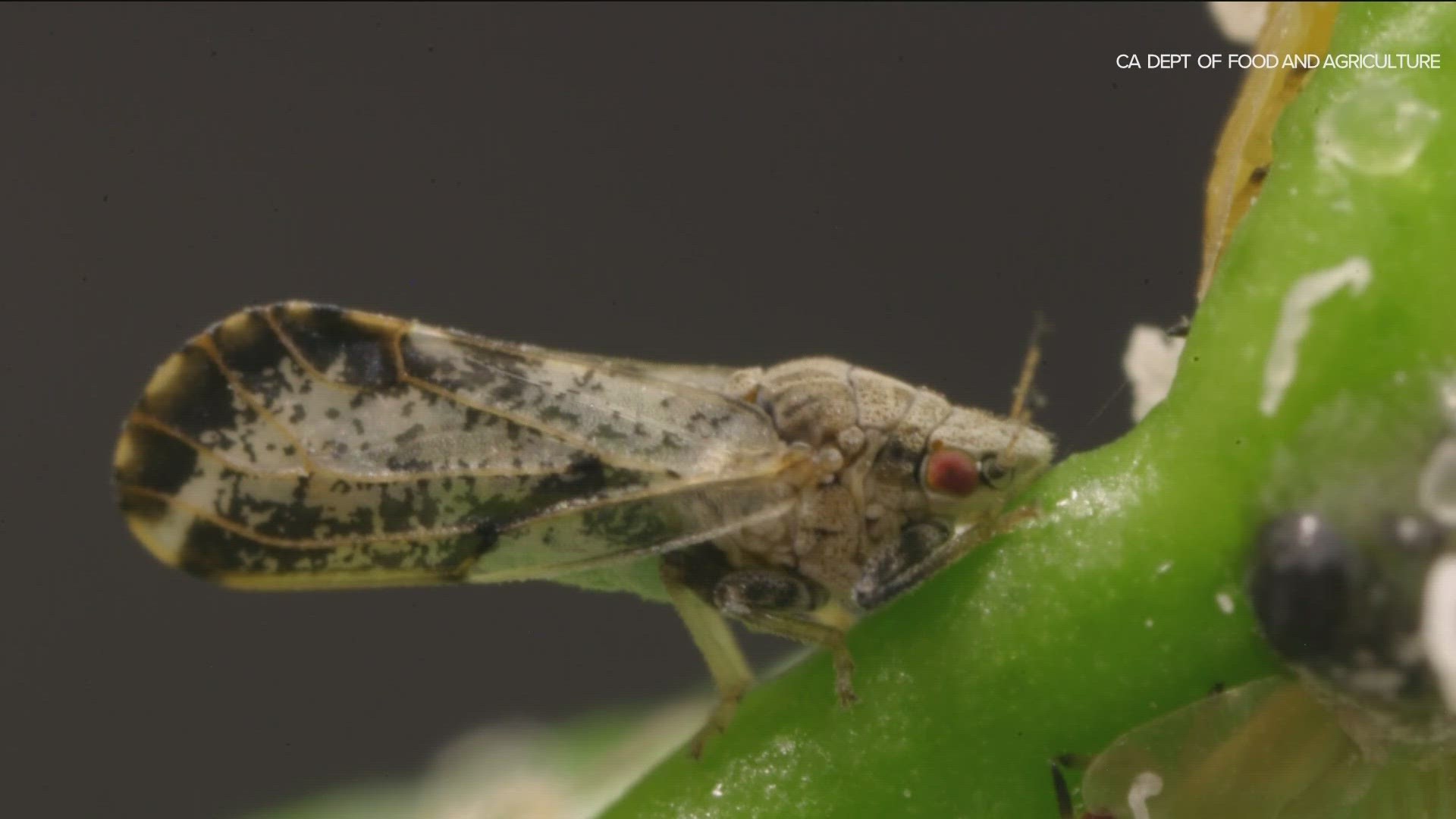SAN DIEGO COUNTY, Calif. — The San Diego citrus industry brings in more than $100 million each year, but there is one bug that could severely impact citrus crops. One way that San Diegans can help protect our ecosystem is by inspecting trees in their own backyards.
The Asian citrus psyllid is a sap-sucking bug that can spread a devastating disease to citrus trees. If the Asian citrus psyllid were to get on a healthy citrus tree, it could kill it in no time. Local growers are controlling the pest right now, but are asking homeowners to do the same.
The psyllid is the carrier of Huanglongbing or Citrus Greening Disease, a bacterial infection of citrus plants.
Garrett Cooper is the Deputy Director of the Department of Weights and Measures for the County of San Diego. "This disease has devastated the citrus in Florida and Texas so, there is a lot of effort to contain it."
That's because it spreads easily.
"It's caused by a bacteria and so, the Psyllid carries the bacteria from tree to tree," Cooper said.
California has a huge citrus crop generating $7 billion annually and providing 22,000 jobs. Here in San Diego that commercial crop brings in $138 million and has been spared from Citrus Greening Disease...so far.
"Up till now Huanglongbing has not been found in any commercial groves, it's mainly been detected at residential properties," Cooper said. "We currently have 3 quarantines in place, one in Oceanside, one in Rancho Bernardo, and one in Valley Center."
David Ross is a Senior Manager at Walter Andersen Nursery and wants to get the word out to homeowners.
"They need to inspect their trees and look for the Asian Citrus Psyllid," Ross said. "It's a tiny dark-colored bug that gets on the new growth at a 45° angle."
The problem is there is no known cure for Citrus Greening Disease. "It only takes one tree, because we can't control the disease, we need to control the bug that spreads the disease."
That means inspecting your citrus trees regularly and treating them twice a year or when the Psyllid is found.
"One of the best sprays I recommend is horticultural oil," Ross suggests. "It's a light mineral oil and it kills by smothering so insects won't develop a resistance to it."
Ross suggests not spraying if bees are present on the tree and waiting until evening when they go back to their hive. "The psyllid is on the outside, but the scale and other bugs are on the inside. So, spray through the tree and making sure you get the backsides is important as well."
Protecting the citrus in your backyard is as simple as inspecting your trees on a regular basis and treating them once or twice a year or when the psyllid is present.
The California Department of Food and Agriculture has a Hotline to call if you believe your citrus trees have psyllid present at 800-491-1899 or visit CaliforniaCitrusThreat.org.
WATCH RELATED: Freezing temps in Southern California cripple avocado farmers (January 2024)

